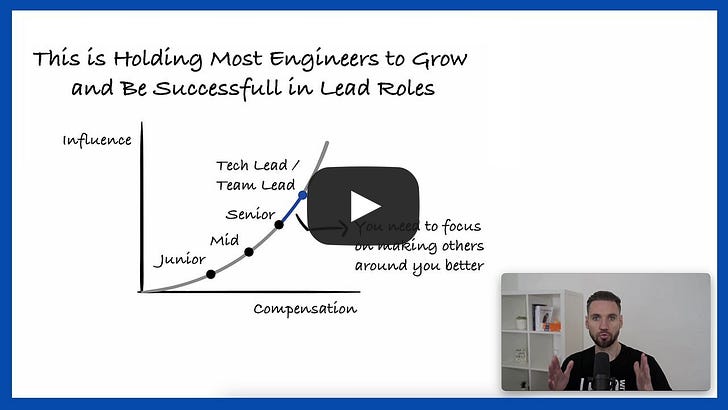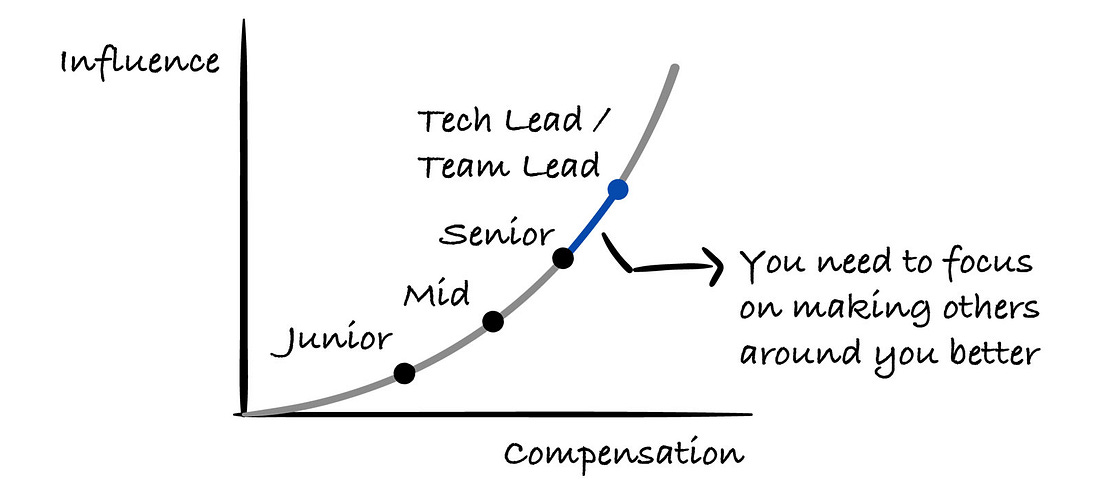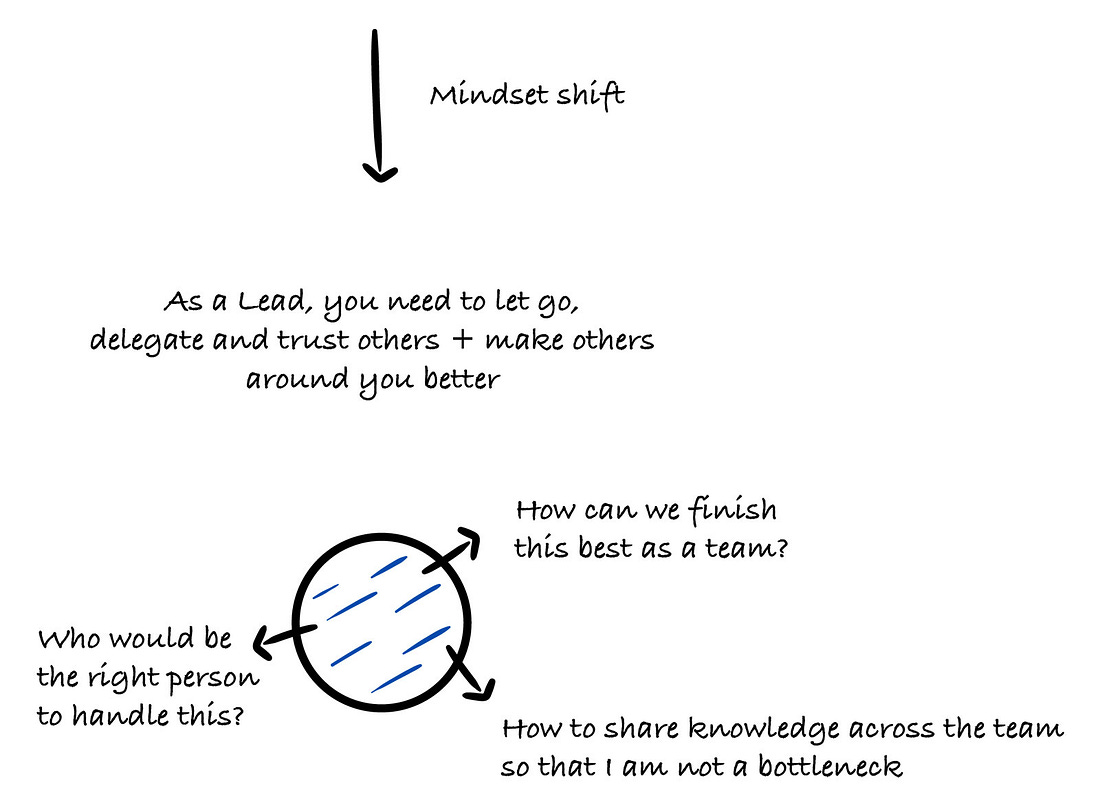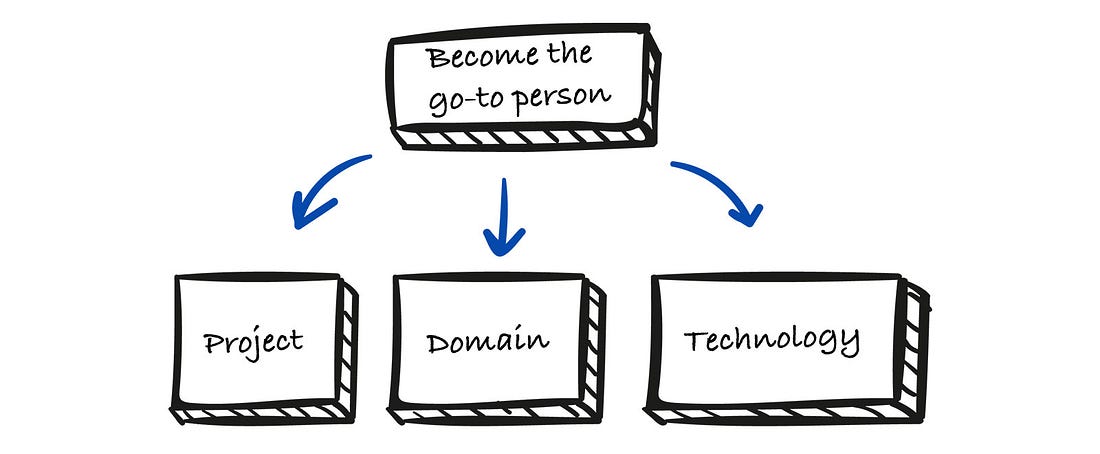This Is Holding Most Engineers Back from Lead Roles
- Gregor Ojstersek from Engineering Leadership <gregorojstersek@substack.com>
- Hidden Recipient <hidden@emailshot.io>
Hey, Gregor here 👋 This is a paid edition of the Engineering Leadership newsletter. Every week, I share 2 articles → Wednesday’s paid edition and Sunday’s free edition, with a goal to make you a great engineering leader! Consider upgrading your account for the full experience here. This Is Holding Most Engineers Back from Lead RolesTrusting others and letting go of control is hard, but very important!IntroThrough coaching and mentoring many engineers who wanted to grow to lead roles, I’ve seen this repeating pattern with many of them.
The more you grow in your career, the more you are judged by the success of your team and projects. And a lot of engineers struggle to make the transition from having complete control of their tasks and projects to letting go, trusting and making others around them better. We’ll break down why that is the case in this article! This is an article for paid subscribers, and here is the full index: - Visual/Audio Version of the Article Visual/Audio Version of the ArticleYou can watch/listen to the video below, or you can keep reading for the complete overview and insights of today’s topic!  The Root Cause of the ProblemAs engineers, we are used to having complete control of the task or a ticket that we are working on. We decide how we are going to solve it, and we normally have full ownership of it. We write all the code, decide on the specific patterns that we’ll use, and we are ultimately accountable for ensuring that everything works correctly. But the problem is that as a lead, you need to completely change your mindset. You need to change the way you think about solving problems. You need to do a mindset shift, which can be a hard thing to do, especially if you’ve been used to working like that for a long time. You need to let go of that control, which you’ve enjoyed having. Let’s go to that next. The Mindset Shift Needed
This is one of the hardest things, because you don’t have complete control of the task anymore, but you need to delegate and trust others that they’ll handle it. So let's look at this scenario. If you have a certain task or a certain project, you should be thinking:
You should NOT be thinking about: This is how I'm going to be solving this problem, but how can I leverage my team and everyone around me to make sure that it's going to be the best for the team → for the project and overall organization. And if you are the only person who is able to finish this project or is able to do this specific thing, then you are failing as a lead. You May Be Close to Burning Out if You Don’t Make the Mindset ShiftWhat may happen in some cases is that an engineer gets promoted to a lead role pre-maturely, before making this mindset shift and they need to either sink or swim. That has happened to me and I’ll walk through that in the next section. But the thing is that, if you're not doing enough coaching and mentoring and you're not leveraging your team enough, what's going to happen is that you're going to be close to burning out because you can't rely on anyone around you. You can't rely on people to take over and handle things. And also, you're not going to be able to take any time off, because everything will stop if you're not going to be there. So what you want to do is:
This is the big mindset shift that a lot of engineers struggle with. And it's hard because, as engineers, we are used to having complete control of the outcomes. But then you need to completely let it go and trust. I’ve Personally Struggled With ThisAs I’ve already mentioned in the article From IC to manager. This is the exact pattern I struggled with as a first-time Team Lead. I tried to do too much overall. I wanted to be in all of the details and even minor things all the time. And also make decisions about everything. This brought me to a place where I didn’t delegate enough and I didn’t assign clear ownership and empower others. I tried to focus on managerial things over the week and I focused on finishing tasks over the weekend. I wanted to do it all → be the best manager as I can be and also be the best engineer on the team.
Based on this experience, I knew I needed to make a change. I knew that I needed to delegate more and also empower people to make decisions themselves. That’s when things started to look a lot better for me. The Identity Shift That We Need to Go Through When Becoming LeadsThe second very hard thing to do and it’s really important to prepare for, is the identity change. You may identify as a go-to person for either a certain technology, project or domain. And it’s especially hard for people who build their whole identity or personality around a certain specific thing. Like, for example, being the C# wizard, Rust champion or TDD expert, etc. Obviously, if you go the Tech Lead route (Staff+ Engineer), you can keep that to a certain extent, but it’s not going to be your primary role to be in the fine details at all times.
You need to be elevating others and making others around you better, not always trying to take on the hardest challenges and do them yourself. Become the Go-To Person to Grow to Lead Roles, But Don’t Take it Too LiterallyI advise to become the go-to person for either a certain project, technology or domain and the reason is that you showcase that you have the right set of skills to be successful in the lead roles. But then the problem comes when people are taking this advice too literally. As a Go-To person, You Shouldn’t:...Subscribe to Engineering Leadership to unlock the rest.Become a paying subscriber of Engineering Leadership to get access to this post and other subscriber-only content. A subscription gets you:
|
Similar newsletters
There are other similar shared emails that you might be interested in:



